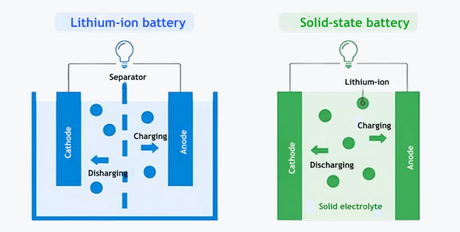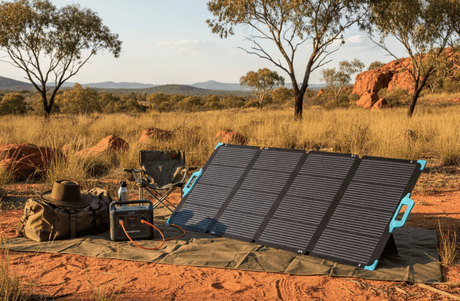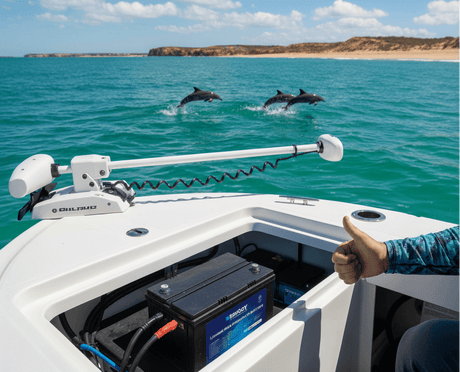Australia is a sunny country, making solar energy a great source of power for households looking to reduce electricity bills. At the same time, solar power also reduces your dependence on the utility grid. Though people in Australia are familiar with the benefits of solar panels, they are concerned about their lifespan. Therefore, they often ask about how long do solar panels last?
The lifespan of solar panels depends on various factors, such as material quality, installation practices, and maintenance. This article presents a comprehensive discussion on the average solar panel lifespan in Australia, factors affecting their reliability, warranties, and ways to extend their lifespan. By the end, you will be able to make a confident decision about investing in a solar panel system.
Average Lifespan of Solar Panels in Australia
Modern solar panels are built to last for up to 25 years. If you buy premium-quality panels from reputable brands like Renogy, they can last well beyond this period. One thing you should know is that the efficiency of solar panels decreases gradually over time.
Generally, solar panels retain over 90% of their original output efficiency in the first 10 years. After 25 years of installing panels, they generate around 80% of their rated output power. If a 10kW solar power system meets your household energy requirements, it might only produce 70% power after 25 years. It means that you either draw more power from the utility grid or need to upgrade your existing system.
In Australia, some solar panel systems have been functioning effectively for more than 30 years. It shows that if you buy high-quality panels and other solar equipment (such as deep cycle batteries, solar inverters, and charge controllers) from trusted brands, they will likely last longer than their standard lifespan.
Important Note: Solar panels do not stop working all of a sudden after working for 25 or more years; instead, they produce less power, which may affect your energy savings.
Factors That Influence Solar Panel Lifespan in Australia
The system setup and weather conditions determine how long your solar panels will last. Let's look at the key factors that affect the lifespan of panels.
1. Australian Climate
Places like Alice Springs and Darwin have intense UV radiations that accelerate wear. An extremely hot climate may stress materials due to thermal expansion. Hailstorms are common across the country, especially in Sydney and Brisbane. They can damage or crack your solar panels. Moreover, cyclones are also dangerous to your panels, as they may dislodge poorly mounted solar panels.
2. Coastal Exposure
If you live somewhere near the ocean, you will likely experience salt mist corrosion. It may damage the electrical components of your solar electric system. This is where premium-quality solar panels come in handy, as they have anti-corrosion coatings to deal effectively with this leading issue.
3. Solar Panel Quality
Buying solar panels is the second-highest investment after batteries when installing your solar system. When it comes to buying panels, make sure you explore different brands and their reputation in the solar industry. Then, choose the one with a good reputation that offers tier 1 solar panels. They will surely last longer than low-quality panels. Cheap panels often come with shorter or no warranties. Plus, their performance degrades faster than usual.
4. Installation
The life span of solar panels largely depends on how they are installed. If they are not mounted properly, their life may be reduced significantly. Plus, the danger of blowing away in extreme weather conditions remains for poorly mounted or improperly installed solar panels.
If your solar panels are not installed properly, they may suffer from issues like overheating, loose wiring, and water ingress. Considering all these factors, always hire Clean Energy Council (CEC) accredited solar installers to set up your system.
5. Maintenance
As you know, panels are installed in an open environment where dust, leaves, bird droppings, and dirt can cover their surface. As a result, sunlight does not reach the panels properly, resulting in less production of electricity, even during peak sunlight hours. This is why you should always keep your solar panels clean and well-maintained. Panels that are not regularly inspected and cleaned can experience long-term degradation.
6. Solar System Components
Apart from solar panels, a solar power system consists of other components, including inverters and batteries. Batteries usually last between 5 and 15 years and need replacement. Otherwise, your panels may underperform. Similarly, a solar inverter is designed to perform for 10 to 15 years. If it fails to function properly, your solar panels may not be able to do their job.
Solar Panel Warranties You Should Know
Reviewing the warranty is one of the most important factors you should consider when buying solar panels. When you explore the warranty details, you get a clear idea of how long manufacturers expect solar panels to last. It helps us decide whether or not you should buy panels from a specific brand.
As far as the Australian solar market is concerned, the product warranties for panels are between 15 and 25 years, while the performance of panels is backed by 25-30 years of official warranty.
In case you don't know the difference between product warranty and performance warranty, product warranty covers issues like manufacturing defects, while performance warranty ensures your solar panels will generate a specific amount of power during their mentioned lifespan.
Brands that offer longer warranties are trusted by more buyers than those offering shorter warranties. The reason behind this fact is that longer warranties gain customers' trust effectively and show the trust a manufacturer has in its product.
How to Know If Your Panels Are Nearing the End of Their Lifespan?
You can see clear signs that your solar panels are ageing, so you don't have to wait for them to stop working completely. Let's look at some potential signs you should be familiar with.
- Physical Damage: You can easily identify any physical damage during routine inspection. Corrosion, yellowing, cracks, and burn marks are leading physical damage issues.
- Inverter Errors: If your inverter gives frequent errors, it is an indication that your panels are having compatibility issues or they are ageing.
- Reduced Production: If you notice that your solar system has started generating less power compared to the previous year without shading issues or significant weather changes, your solar panels are nearing the end of their lifespan.
- Rising Electricity Bills: It is another leading problem that indicates you need a solar panel replacement. A sudden increase in the dependence on the utility grid means your panels are not producing electricity as they are supposed to do.
How to Extend the Life of Your Solar Panels in Australia?
The only way to extend the lifespan of solar panels is to keep them well-maintained and clean. Let's look at some expert tips in this regard.
Invest in Quality: Buying premium-quality tier 1 panels ensures you experience fewer issues in the long run.
Install Properly: Proper orientation and tilt angle are good for reducing stress from water pooling and wind.
Clean Regularly: There is no fixed schedule for cleaning your panels. All you need to do is keep an eye on their surface. Cleaning them twice a year is a good practice. If you live in dusty areas, you may need frequent cleaning.
Use Monitoring Apps: Modern solar systems come with monitoring apps to track daily power output. It helps you detect underperformance in no time.
Professional Inspections: Have your system inspected annually. An experienced technician can highlight and fix early issues, including inverter faults, loose wiring, and water damage.
Can Solar Panels Work Beyond Their Expected Lifespan?
Yes, they can work, even after reaching their expected lifespan, but at a lower efficiency. Some solar panels that were installed in the 1990s in Australia are still working. They are often combined with new systems to get the most out of them.
Similarly, many solar panels in the United States and Germany have been working perfectly for more than 35 years. It proves that durability is achievable.
Lifespan vs. Cost: Is Going Solar Worth It in Australia?
Solar energy is one of the best investments for Australian homes. If you need a 6.6kW system to meet your energy requirements, it will cost you between $4500 and $8,000 after rebates, with a payback period of 4 to 6 years.
It means that you can enjoy free power (with solar panels lasting up to 25 years) for 15 to 20 years after payback. Considering the rising cost of electricity in Australia, solar remains a great investment.
Future of Solar Panel Technology in Australia
Solar panel technology is continuously advancing, which means future solar panels may last longer than those existing these days. Bifacial solar panels can produce electricity from both sides, which improves 10-20% efficiency.
Similarly, Perovskite solar cells are flexible, lightweight, and last longer than silicon panels. Moreover, AI-driven real-time monitoring may optimise performance like never before. These technologies can allow households to benefit from more efficient and longer-lasting solar systems.
Final Thoughts
How long do solar panels last in Australia? The average lifespan of solar panels in this country is 25 to 30 years. However, it mainly depends on various factors, such as product quality, installation, and maintenance. High-quality solar panels last longer than cheap panels. At the same time, a properly installed and well-maintained solar panel system functions well for decades.
Solar panels offer a range of benefits, including reducing reliance on the utility grid and reducing electricity bills. Since Australia is one of the sunniest countries, solar power is not just a short-term solution, but it is a long-term investment in sustainability and energy independence. If you want to go solar in Australia, prioritise buying tier 1 panels and other solar equipment from a trusted brand like Renogy.
FAQs about Solar Panel Lifespan
Do solar panels stop functioning after 25 years?
No, solar panels don't stop working after 25 years—they simply produce electricity at a reduced efficiency. Most panels still operate at around 75 - 80% of their original output. This gradual decline is normal and expected, making solar a long-term investment that continues to deliver value well beyond its warranty period.
How often should I clean my panels in Australia?
In most parts of Australia, cleaning your solar panels once or twice a year is sufficient to maintain optimal performance. However, if you live in rural or dusty regions, more frequent cleaning may be necessary due to increased dirt and debris buildup. Regular maintenance helps maximise energy output and extends the life of your system.
Do warranties cover the entire lifespan of solar panels?
Yes, many premium solar panel brands offer warranties that span the full expected lifespan of the panels. Typically, you'll get a 10-15 year product warranty covering defects and a 25-year performance warranty that guarantees a certain level of energy output. These warranties provide peace of mind and long-term protection for your solar investment.









![What Is a DC to DC Battery Charger [Comprehensive Guide]](http://au.renogy.com/cdn/shop/articles/IMG_3829_bd86de74-31d6-49fd-b9d5-265bb723091d.jpg?v=1757582605&width=460)